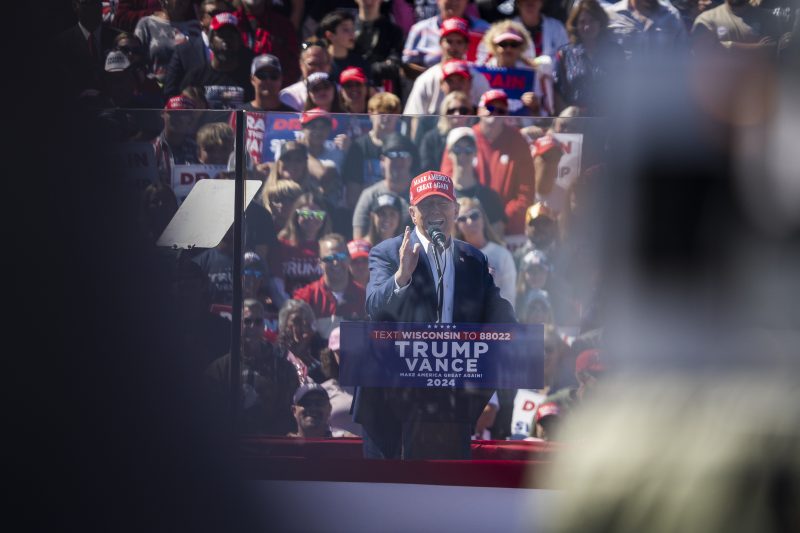In a recent turn of events, former President Donald Trump appears to have pointed fingers at his political rivals in a shocking statement that suggests they are to blame for a potential assassination attempt targeting himself. This allegation, made against President Joe Biden and Vice President Kamala Harris, has sparked a wave of controversy and debate within the political sphere.
Trump’s claim of the rhetoric used by Biden and Harris being responsible for inciting violence against him has opened up a Pandora’s box of concerns regarding the escalating tensions within the American political landscape. It is a stark reminder of the deeply divided nature of the country and the growing polarization between opposing ideologies.
However, it is worth noting that attributing blame for any potential harm or violence solely to the rhetoric of political opponents is a dangerous oversimplification of a complex issue. Political discourse and disagreements are an inherent part of democracy, but they should never be used as a justification for violence or threats against individuals, regardless of their political affiliation.
In a democratic society, it is crucial for leaders to promote civil discourse and respectful disagreements, rather than resorting to inflammatory language or accusations that can escalate tensions and incite violence. The responsibility to maintain civility and adherence to democratic principles lies not only with political leaders but also with every citizen who plays a role in shaping the discourse of the nation.
It is imperative for all stakeholders, including political leaders, the media, and the general public, to prioritize dialogue, understanding, and empathy when engaging in political discussions. Blaming one another for inciting violence only serves to deepen existing divisions and erode the very foundations of democracy that we hold dear.
As the nation grapples with the aftermath of Trump’s controversial statement and the underlying implications it carries, it becomes evident that a concerted effort is needed to bridge the gap between opposing viewpoints and foster a more inclusive and respectful political environment. Only through genuine dialogue, mutual respect, and a commitment to upholding democratic values can we hope to move forward as a united society, free from the specter of political violence and extremism.
In conclusion, while Trump’s accusation against Biden and Harris may have brought attention to the urgent need for civil discourse and responsible leadership in politics, it also serves as a stark reminder of the fragility of democracy in the face of escalating tensions and polarization. It is a call to action for all citizens to actively engage in shaping a political culture that values unity, empathy, and respect above all else.

